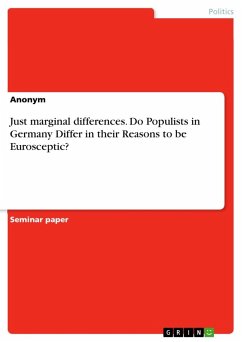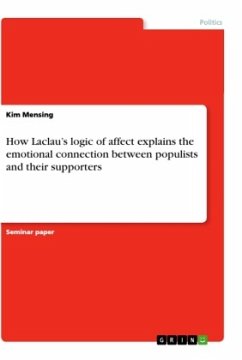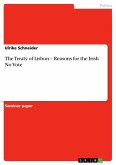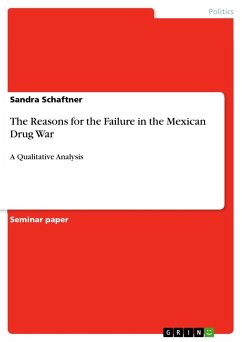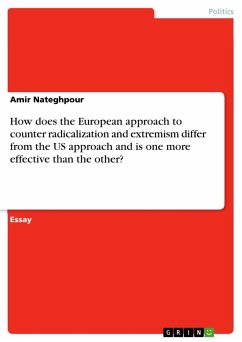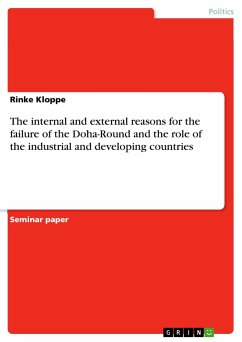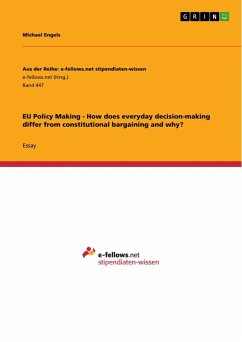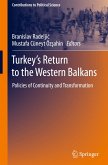Seminar paper from the year 2023 in the subject Politics - Miscellaneous, grade: 1,0, University of Mannheim (Social Sciences), course: Hauptseminar, language: English, abstract: Euroscepticism has become a timely topic with increasing relevance for the cooperation within the EU. However, some groups within European societies like certain types of populists might differ in their reasons to be eurosceptic. Particularly due to distinct characteristics of populists and the influence of the populist movement as the driving force of the backlash against the EU. This is also visible in the EU¿s largest member state Germany. This term paper examines whether there are differences in the reasons to distrust the EU between Left-Wing Populists and Right-Wing Populists in Germany by testing the influence of widely assumed reasons like nationalism, anti-immigration sentiments and economic concerns. The results of different OLS-regressions with standardized coefficients show a positive impact of anti-immigration sentiments for both types of populists while, contradicting the theoretical argument, being a stronger predictor for left-wing populists. Moreover, economic concerns and nationalism are not strongly associated with being eurosceptic with just small differences between the types of populists. An alternative reason for being eurosceptic seems to be distrust in the national government as a cue for also distrusting the EU as the major factor for both groups while being slightly stronger for right-wing populists. This term paper aims to contribute to the literature on Euroscepticism and tries to help broaden the understanding of how the EU could become more attractive for certain groups of the population.

